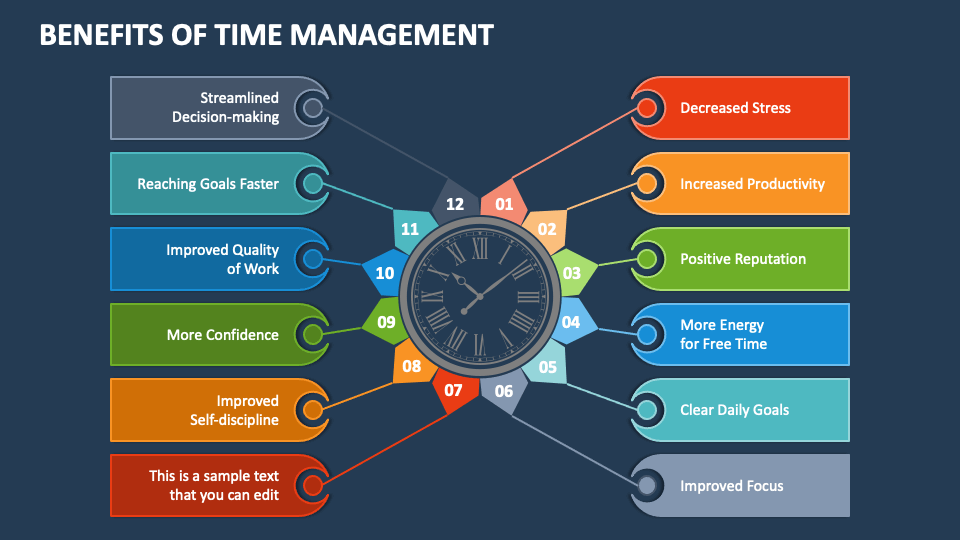The Importance Of Middle Management: Benefits For Companies And Employees

Table of Contents
Bridging the Gap: How Middle Management Improves Communication and Collaboration
Middle managers are the vital link connecting senior leadership's strategic vision with the daily operations of frontline employees. Their role in effective communication and collaboration is paramount to organizational success.
Enhanced Communication Flow
Middle managers act as a crucial conduit, ensuring clear and consistent messaging flows both up and down the organizational hierarchy. This streamlined communication:
- Reduces misunderstandings and improves efficiency: Clear directives and consistent messaging minimize errors and delays, leading to smoother workflows.
- Facilitates upward and downward feedback loops: Middle managers gather feedback from employees and relay it to senior management, ensuring that concerns and suggestions are heard and addressed. They also effectively communicate top-down directives, ensuring understanding and buy-in.
- Improves transparency and trust: Open and honest communication fosters trust between management and employees, creating a more positive and productive work environment.
Fostering Teamwork and Collaboration
Effective middle managers are adept at building strong teams and fostering collaboration. They:
- Encourage cross-functional teamwork: They facilitate collaboration between different departments, breaking down silos and promoting a more integrated approach to problem-solving.
- Solve inter-departmental conflicts efficiently: Their understanding of different teams' perspectives allows them to mediate conflicts and find mutually beneficial solutions.
- Promote a culture of shared responsibility: They empower team members to take ownership of their work and contribute to collective success, fostering a sense of shared purpose.
Driving Performance and Productivity through Effective Middle Management
Middle management plays a critical role in translating strategic goals into actionable plans and driving performance improvements across the organization.
Setting Clear Goals and Expectations
Effective middle managers are skilled at translating company-wide strategies into clear, achievable goals for their teams. This ensures everyone is aligned and working towards the same objectives:
- Increases team accountability and ownership: Clear expectations foster a sense of ownership and responsibility among team members.
- Improves task delegation and prioritization: Middle managers effectively delegate tasks, ensuring that workloads are balanced and priorities are appropriately addressed.
- Leads to measurable performance improvements: By setting clear goals and tracking progress, middle managers can identify areas for improvement and celebrate successes, driving tangible results.
Mentoring and Development
Investing in employee development is a key responsibility of middle management. They actively contribute to skill enhancement and talent nurturing by:
- Identifying and nurturing talent within the organization: They recognize high-potential employees and provide them with opportunities for growth and advancement.
- Providing ongoing training and support: They offer ongoing support and training to help employees develop their skills and reach their full potential.
- Increases employee retention and morale: Investing in employees shows that the organization values them, leading to increased job satisfaction and reduced turnover.
Monitoring Performance and Providing Feedback
Regular performance monitoring and constructive feedback are crucial aspects of effective middle management. This process:
- Provides constructive criticism and support: They deliver regular feedback, both positive and constructive, to help employees improve their performance.
- Facilitates regular performance reviews: They conduct formal performance reviews, providing employees with an opportunity to reflect on their achievements and areas for development.
- Leads to improved employee performance and productivity: Through regular feedback and performance monitoring, middle managers can identify and address performance issues early on, preventing them from escalating.
The Impact of Effective Middle Management on Employee Well-being and Retention
Effective middle management significantly impacts employee well-being, leading to increased engagement and retention.
Improved Employee Engagement
A supportive and engaging work environment fostered by strong middle management directly leads to higher morale and motivation:
- Fosters a positive work culture: Middle managers set the tone for the team's culture, promoting a positive and supportive atmosphere.
- Improves employee satisfaction: Employees who feel valued, supported, and respected are more likely to be satisfied with their jobs.
- Reduces employee turnover: A positive work environment contributes to higher retention rates, reducing the costs associated with employee turnover.
Increased Employee Satisfaction and Loyalty
Middle managers who provide guidance, support, and recognition cultivate a sense of loyalty and commitment:
- Creates a sense of belonging and purpose: They help employees feel connected to the organization's mission and values.
- Improves work-life balance through effective management: They help employees manage their workloads effectively, promoting a healthy work-life balance.
- Reduces workplace stress and burnout: By creating a supportive environment and addressing workload issues, they contribute to a reduction in stress and burnout.
Conclusion
In summary, the importance of middle management cannot be overstated. Effective middle management bridges the gap between leadership and employees, drives performance and productivity, and significantly impacts employee well-being and retention. Investing in and developing strong middle management teams is a strategic decision that yields significant returns for both the company and its workforce. Don't underestimate the power of strong middle management – it's a cornerstone of a thriving and successful organization. Start building your ideal middle management team today and reap the benefits of improved communication, increased productivity, and a more engaged and loyal workforce. Invest in your middle managers, invest in your future.

Featured Posts
-
 Ai Driven Podcast Creation Processing Repetitive Scatological Documents
Apr 22, 2025
Ai Driven Podcast Creation Processing Repetitive Scatological Documents
Apr 22, 2025 -
 Stock Market Valuations Bof A Explains Why Investors Shouldnt Worry
Apr 22, 2025
Stock Market Valuations Bof A Explains Why Investors Shouldnt Worry
Apr 22, 2025 -
 Kyiv Under Pressure Responding To Trumps Plan To End The Ukraine Conflict
Apr 22, 2025
Kyiv Under Pressure Responding To Trumps Plan To End The Ukraine Conflict
Apr 22, 2025 -
 Googles Monopoly The Growing Call For A Breakup
Apr 22, 2025
Googles Monopoly The Growing Call For A Breakup
Apr 22, 2025 -
 Hegseth Under Fire New Signal Chat And Pentagon Chaos Claims
Apr 22, 2025
Hegseth Under Fire New Signal Chat And Pentagon Chaos Claims
Apr 22, 2025
